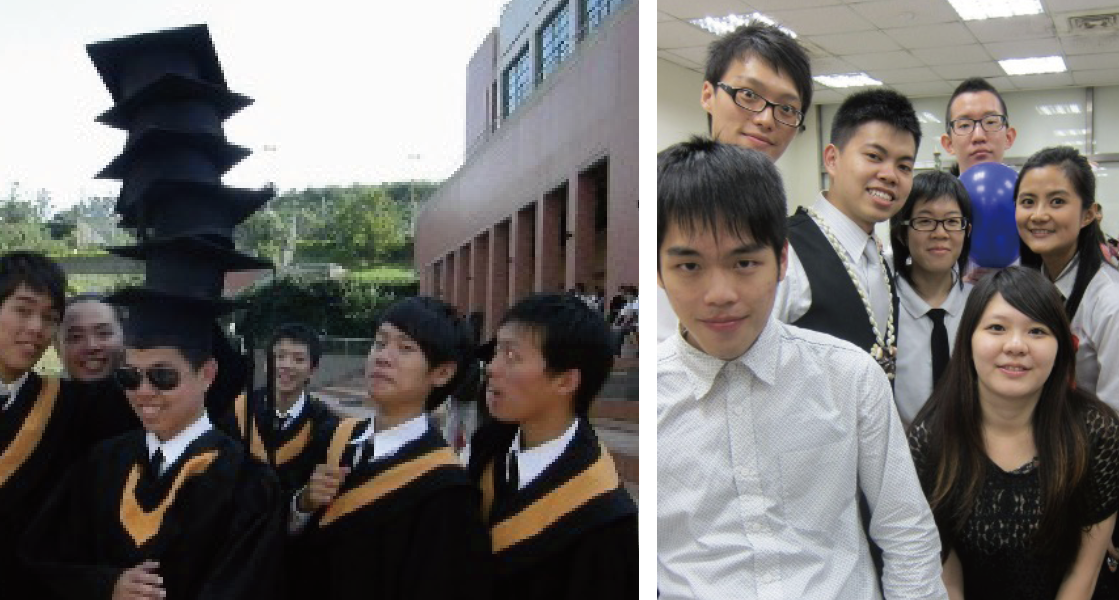by / Brian Houng

We are all taught at an early age that we must do well in school in order to have a high paying job in the future. By not making it into a prestigious school like 台大 or Harvard, we’re destined for mediocrity. I was never at the top of my class and didn’t graduate from a fancy university, but here’s how I proved everyone wrong, including myself.
Throughout high school, I struggled to keep up with my classmates academically. Whenever I sat down to study, my mind would drift off and I found myself thinking about anything other than what I was studying. I consistently missed deadlines for my homework, failed my tests, and fell asleep in class. In Chinese class, I slacked off so much that I got held back twice. One time, I got into so much trouble, I was almost expelled.
I thought something was wrong with me. I was put into an environment where there was immense pressure to memorize giant textbooks, overachieve by taking college level classes, and get a top 1% score on the college admission exams. Graduating with a 4.0+ GPA was the norm at my high school. Anything below 3.5 was considered below average. I graduated with a 2.13 GPA – great, now what?
When I entered Ming Chuan University (MCU), I thought I was going to experience the same thing I experienced in high school – trying and failing to memorize textbooks, working on homework that I had no passion for, and putting in so much effort just to barely graduate with a degree. However, something was different about this place. I found myself in an environment where I wasn’t being forced to do anything. I set my own goals and my own schedule. Instead of being expected to read and study topics I had no interest in, I was encouraged by my professors to explore my creativity and passion.
I found myself thriving in this environment and realized this is what the real world is like. No one is going to force you into doing anything, you have to be responsible for yourself and your own future. This new realization empowered me to find what I was good at and run with it. I found myself enjoying building and creating things, and also working with people and delegating tasks. I was able to quickly adapt and blossom.
In my senior year, I was nominated as team lead for our senior project. We were tasked to create an application that simulated how a train ticketing system operates. The project was set up in a way that felt like something I would work on in a real job, but with training wheels. I didn’t know it at the time, but that project allowed me to develop the leadership skills that I still use today. I finally graduated with a 3.5 GPA – still below average.
Fast forward to the present day: I now work at a large tech firm in Silicon Valley in California. I lead a team of talented engineers who graduated from famous universities. I have almost ten years of experience in engineering under my belt and help teach people from non-tech backgrounds to become engineers. I’ve been told I have a rare combination of technical and managerial skills, and I’ve even heard that I was the reason many have joined my company. At this point, I think it’s safe to say my failures in my academic life did not predetermine my professional life. I proved everyone wrong.
Other than becoming a successful software engineer, I’ve also found accomplishment in other areas. I bought multiple houses and started my own real estate business, invested in bitcoin very early on, became an angel investor in a startup, and started a few other ventures that have helped me gain multiple sources of income.
Throughout my journey, there are important lessons I learned, some of which I would like to share with you.
There are many ways to succeed, just like there are many ways to solve the same issue in software engineering; there are many ways to flourish. Being “smart” doesn’t necessarily mean just memorizing a textbook and regurgitating all the information onto a piece of paper. There are different paths to take. Find the path that makes the most sense for you and go for it.
Academic backgrounds are overrated. Looking back at when I first graduated MCU in 2011, I felt insecure at first about my background and how it compared with my coworkers who graduated from MIT or Stanford. However, once I got my foot in the door, I realized how little one’s college degree means to employers. Now that I’m on the other side and have interviewed over 100 engineers, I can’t remember any of the candidates’ GPAs or where they graduated from.
I couldn’t tell you how many times I’ve failed in my life. Even today, I’m still constantly failing. Failing is not a reflection of future outcome; being able to learn from failure is.
If you’re struggling right now despite trying your best, then you just haven’t found your strengths yet. Look for what you’re good at and passionate about, and keep practicing and growing those skills until you are recognized for them.




